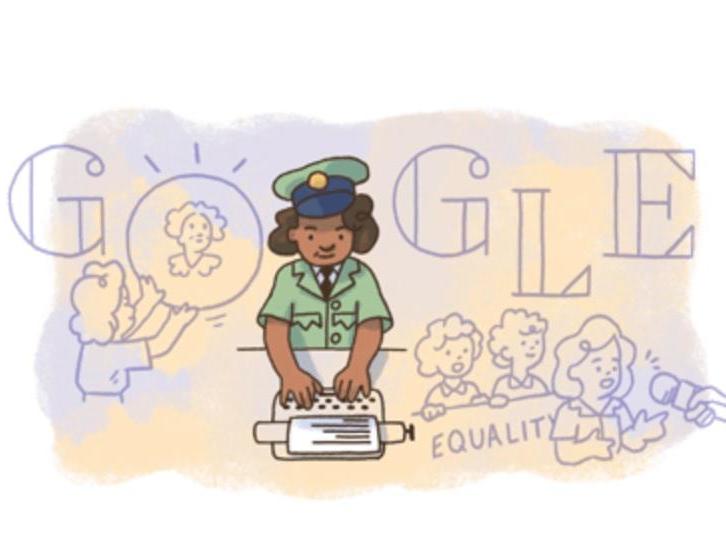Who was Connie Mark? The Second World War veteran and campaigner for recognition of black servicewomen
War veteran and activist is celebrated in Google Doodle on what would have been her 95th birthday
Your support helps us to tell the story
From reproductive rights to climate change to Big Tech, The Independent is on the ground when the story is developing. Whether it's investigating the financials of Elon Musk's pro-Trump PAC or producing our latest documentary, 'The A Word', which shines a light on the American women fighting for reproductive rights, we know how important it is to parse out the facts from the messaging.
At such a critical moment in US history, we need reporters on the ground. Your donation allows us to keep sending journalists to speak to both sides of the story.
The Independent is trusted by Americans across the entire political spectrum. And unlike many other quality news outlets, we choose not to lock Americans out of our reporting and analysis with paywalls. We believe quality journalism should be available to everyone, paid for by those who can afford it.
Your support makes all the difference.Google has paid tribute in its latest Doodle to Connie Mark, a Second World War medical secretary who later became an activist for Caribbean people in Britain, on what would have been her 95th birthday.
She is regularly named among the most influential black British women in history. But who was Connie Mark and how did she come to be regarded as an inspirational figure? Here are five things you may not have known about her.
She joined the war effort from Jamaica
Born Constance Winifred McDonald in Kingston, Jamaica, in 1923, Mark was just 16 when the Second World War broke out.

By the age of 21, she had joined the Auxiliary Territorial Service (ATS), serving in Jamaica as a medical secretary, typing reports detailing the injuries of soldiers.
Row over pay saw her take her first steps in activism
Mark was first encouraged to take steps into activism by what she saw as discrimination during her time in the ATS.
Despite being promoted twice within the space of a year, she did not receive a pay rise, a move she believed was rooted in racism. She fought for but never received money she considered was owed to her in back pay.
She was denied a British Empire Medal
Following the war, Mark’s application for a British Empire Medal was turned down by authorities.
She believed the refusal to grant her the medal was related to the fact she had refused to clean the private quarters of British officers during her time in the ATS. She finally received her medal in 1992.
Her activism took off after moving to the UK
After marrying first-class cricketer Stanley Goodridge, Mark moved to Britain in 1949, where she initially continued her work as a medical secretary.
She soon joined the West Indian ex-Servicemen’s Association, where she campaigned for the recognition of women’s efforts during the war, especially the service of black women.
She campaigned for recognition of one of her predecessors
Marks fought for proper recognition of the work of Mary Seacole, the Jamaican-born British nurse who worked behind the lines during the Crimean War.
Her campaigning saw the establishment of a permanent memorial to Seacole and a government bursary honouring her, granting £25,000 a year for nursing studies.
Mark continued to pay tribute to those who served alongside her in the war by taking part in parades every Remembrance Day until her health no longer allowed. She died in London in 2007, aged 83.

Join our commenting forum
Join thought-provoking conversations, follow other Independent readers and see their replies
Comments